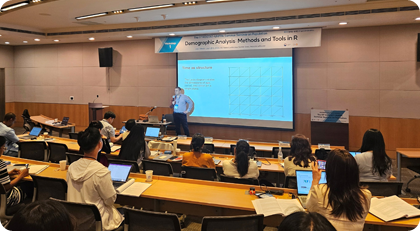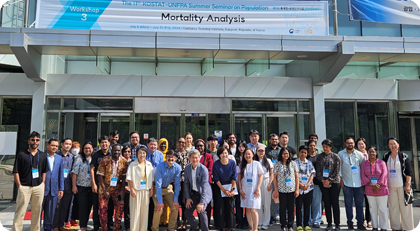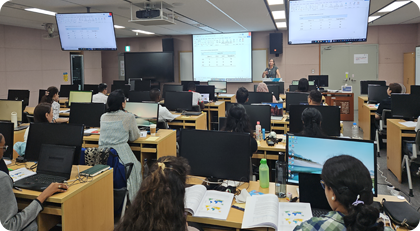
The 12th KOSTAT-UNFPA Summer Seminar on Population
제12회 통계청-유엔인구기금 인구서머세미나
Statistics Korea (KOSTAT) and the United Nations Population Fund (UNFPA) provide a
high-quality training program in population statistics to address emerging global
demographic challenges. This program aims to develop expertise and enhance international
collaboration in the field of population statistics.
Held annually, the Summer Seminar brings together government officials, academic experts,
and graduate students in the field. It serves as a platform for diverse perspectives on
demographic issues, fostering research and policy advancements worldwide.
The 12th Seminar features three distinct yet consecutive Workshops focusing on research
and methodologies, addressing key contemporary demographic challenges such as low birth
rates, COVID-19, and aging populations. We invite you to join this dynamic academic forum
and contribute to shaping the future of demography.


